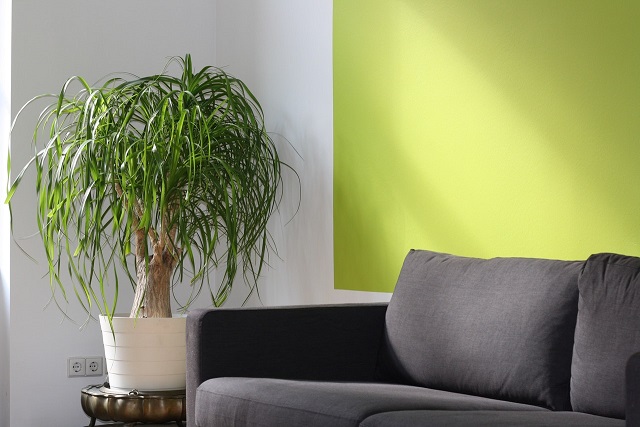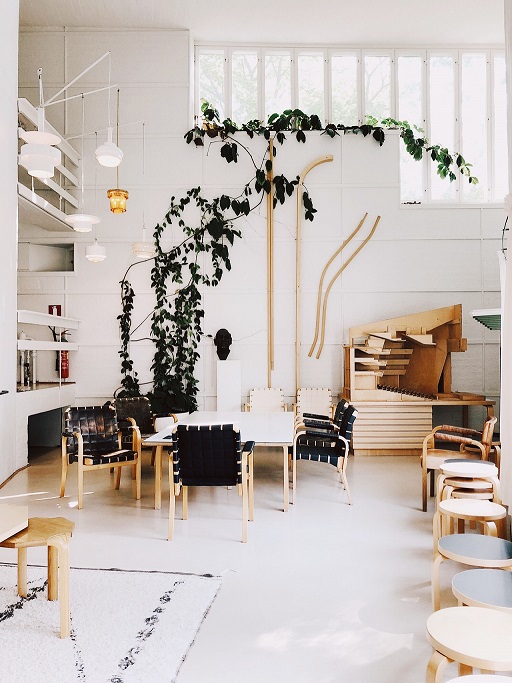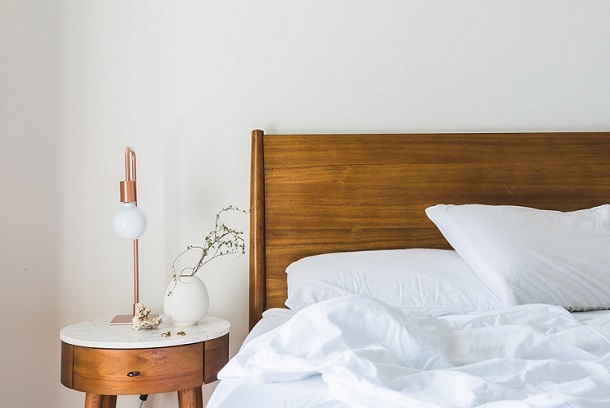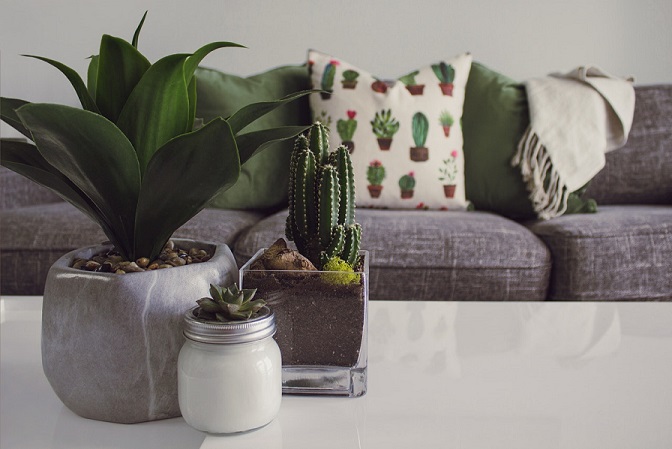Sustainable Furnishing: 8 Tips for Creating An Eco-Conscious Living Space
Probably the best time to make a shift towards sustainable living is when you move to a new home. Not only because of an emotional reinvention that the change brings, but also because moving motivates you to let go all the unnecessary clutter, and replace a good deal of your furniture with pieces that suit the new space and layout. If lived previously in apartments that all came per-furnished, consider looking for an unfurnished place, and to create a sustainable environment using these tips.

1. Measure the rooms
While measuring the width and length of every room might not look like a sustainability ‘measure’, if you buy furniture without having an idea how it will fit in the space, there is a good chance that you’ll get disappointed over time, creating more waste as you go to replace it. Apart from measuring the length of each wall, take a measure of your ceiling height, as well as the doorways and windows. Sketch a simple floor plan of the apartment and use it for reference when looking for every piece of furniture.
2. Make a furniture list
Apart from getting a clear idea of what you need, a furniture list can also help you rate which items you need right away, for example the bed frame, mattress, and curtains, and those which can wait for a bit, such as rugs, lamps, and plants. This way you will avoid impulse buys that you actually come to dislike later on. Also, leave room next to each item on the list for the ideal measures, based on your floor plan measurements.
3. Look for natural materials
Synthetic fiber upholstery, flame retardants, and petrochemical foams have received much criticism lately because of their VOC content. Volatile organic compounds are chemicals found in many modern furniture pieces that come with wood varnishes, chemical coatings, and other synthetic materials. That fresh smell of a newly unrolled carpet is actually VOCs gassing off into the air you breathe. Apart from being in close contact with our bodies, these chemicals continue to pollute the soil and waterways even after the disposal.

4. Consider second-hand furniture
While in many people’s minds second-hand equals bug-infested and rickety, the truth is that second-hand items are by large sturdy items, made of quality materials that have withstood the test of time, and got a second chance in someone’s sustainably furnished apartment. Purchasing second-hand furniture saves three things – your money, landfill space, and the environment. While it may take a bit longer to find what you actually want, in the end it’s definitely worth it.

5. Scout for multipurpose pieces
An important aspect of sustainability at home includes downsizing the number of pieces you need by choosing furniture that has more than one function. An example of such a space-saving product is a modern queen bed frame with four spacious drawers on metal runners that eliminate your need for a separate linen closet or a chest of drawers. While your clothes are readily accessible, your room remains free of clutter, allowing its style to pop up.

6. Combine old and new materials
If you can’t find every item that is sustainably made at a price point you want to spend, consider investing in new sustainably made pieces you’re sure you’ll keep for decades, and combine them with refurbished and used furniture pieces from vintage stores or online classifieds sites. For example, if you bought a new bed, you can go creative with the rest of the budget and get a second-hand period desk and shelving. The beauty of going with reused furniture is that you can actually combine styles and elements from different sets with amazing results.

7. Dispose of pieces you don’t need
Instead of leaving your old furniture in the street, or taking it to the landfill ourselves, it’s important that we act sustainably even when it comes to disposing of our unwanted pieces. House furniture is highly salvageable, so for example, your unwanted dining chairs might become someone’s lucky find. If you need to move and decide that taking everything with you wouldn’t be practical, spare a couple of minutes and put a classified ad online, or ring a local charity and donate it.

8. Decorate with low-water plants
By shopping at your local grower’s market you can both save money and get to ask about species that need less watering.
These include many varieties of:
- cactus’s and succulents such as the Yucca tree
- also orchids
- pohtos
- snake plant
- devil’s ivy
All these plants require little water to flourish, which makes them highly sustainable and healthy greenery options.
Shifting your place towards sustainable living isn’t too difficult. However, keep in mind that the change won’t come over night, especially if you share the place with your partner or a housemate. In this sense, the best approach would be to tackle the sustainable projects one by one, which both makes them more manageable and easier for other people to adjust.
This article is part of a group of bloggers that I am participating with to help you learn self-sufficient skills, how to be self-reliant and live a healthier and greener life. So please check out all the valuable information on Self Reliance Challenge for 2019.
Let’s all help to make this world a little healthier and safer and please share your ideas and/or tips in the comments section below!

Pingback: 3 Ways to Protect Our Planet and Celebrate Earth Day
These are all great tips! I like the addition of houseplants, too.
I am so glad you liked my tips. I have my house filled with many plants which are great for the decor, are great natural air cleaners, and just makes me feel better mentally. Have a wonderful day!
Some of my favorite pieces have been handed down through generations or purchased second or third or fourth hand at yard sales. The quality of these older pieces is often far superior to our modern day disposable things.
Hi Robin,
I have bought so much great stuff at yard sales and sometimes we might redo part of it and sometimes its great the way it is. I totally agree with that the older stuff is much sturdier and so much superior craftsmanship. Thanks for stopping by and commenting.
Love these ideas. Very detailed and helpful. Thanks!
HI Dianne,
So glad you liked you ideas and found them helpful. Thanks for stopping by and commenting. Have a healthy, happy & blessed day!
Neat ideas. My husband and I decorate with a lot of wood, probably not eco-conscious, though (he stains it). I do love the way a more eco-friendly home is decorated, though. Very pretty.
Hi Kristi,
Glad you liked my ideas. Just a suggestions you can buy non-toxic stains that are not harmful to humans or the environment. One such company that I bought from is Green Building. Their products work really well and we have used them many times. Thanks for stopping by and commenting.
Decorating with natural, sustainalbe products is a wonderful way to reduce our carbon footprint and live a healthier life! Thanks for sharing!
Hi Lisa,
I totally agree with you. Have a healthy, happy & blessed day!
Great advice. I will be consulting this post again when we find our new home!
Hi Nancy,
Glad to know that you my post will be helping you make smart choices when you move to a new home. Thanks for stopping by and commenting!
Great idea’s on how to do this, I love my second hand piece..
Hi Valeria,
Glad you liked my ideas and I also use a lot of second hand pieces in my home. Have a healthy, happy & blessed day!
We have many second hand pieces that we have refurnished and they are beautiful and useful. Natural products like cotton is something we use. Like all your suggestions for better living.
HI Candy,
I also use many second hand or refurnished items in my house. Glad you like my suggestions. Have a healthy, happy & blessed day!